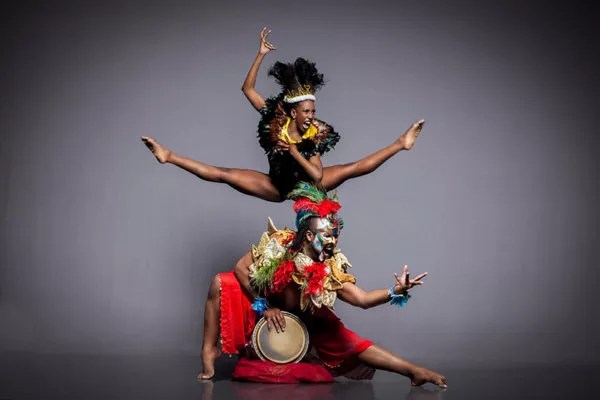
Cleo Parker Robinson Dance Theatre

Audio By Carbonatix
To conclude its 46th season, Cleo Parker Robinson Dance will perform excerpts from Porgy and Bess and Sergei Prokofiev’s Romeo and Juliet. Denver choreographer and dance legend Cleo Parker Robinson‘s version of Romeo and Juliet is a refreshing take on the classic that was first performed as a ballet in 1938. Robinson’s rendition is set in New Orleans and focuses on the star-crossed union of two lovers – one who practices Catholicism and the other who follows the Yoruba religion.
In addition to Romeo and Juliet, the company will also perform an excerpt from Porgy and Bess, treating audiences to two radically different styles of dance and music in one show.
Westword sat down with Parker Robinson to discuss the piece.
Westword: Give us a little background about the Yoruba religion, as some folks who will watch the show may not have even heard of it.
Cleo Parker Robinson: Yoruba religion comes mostly from West Africa and has influenced regions of the slave trade. As you know, the slave trade went from Africa down the coasts of North and South America. The influences I have in mind here are Latin American, such as Brazil, Cuba and the southern communities in North America such as New Orleans.
Porgy and Bess is such a beautiful piece. Why did you choose to include it alongside Romeo and Juliet? They are both from such different eras, but both focus on star-crossed lovers.
They are both pieces that I did with the Colorado Symphony Orchestra. I would like our audiences to experience some of the works that I did that are more classical. In 1995, I choreographed Porgy and Bess, a ten-minute trio with the Colorado Symphony Orchestra at an outdoor concert, and I decided to build upon it, excerpting some of the best music from the opera. In 2000, I choreographed and directed Porgy and Bess for Opera Colorado. For this concert in April to May 2017, I am taking the excerpts of the best of Porgy and Bess and performing live in our theater, expanding the trio into a larger community taking place in Charleston, South Carolina, in 1935.
How does Gershwin’s music move you in a different way than Prokofiev’s?
They are both very powerful and move me to joy and tears. I am more familiar with Gershwin, because I’ve heard his music sung all of my life. I remember seeing Nina Simone singing “I Love You Porgy.” It stayed deep inside of me. I had also heard Prokofiev’s music but never imagined choreographing to it until later. I’m telling these two love stories through dance and music with a classical and yet untraditional approach. Congo Square in New Orleans is where the drums were banished and the language and the religion was forbidden, but the spirit was so strong, you can still find the practices of the Yoruba religion present in the dances and the drumming.

Artists of Cleo Parker Robinson.
Cleo Parker Robinson Dance
Why did you choose New Orleans and Mardi Gras as the settings for your rendition of Romeo and Juliet?
I chose New Orleans because I wanted to show the conflict between two families – one of the Yoruba tradition and the other of the Catholic tradition. There is a ball scene in Romeo and Juliet, and I felt it was very much like the ball I had attended in New Orleans.
What contemporary issues in the African-American community and otherwise could be perceived as star-crossed in 2017?
Love is a common theme as well as community – also cultures and our exposure to different cultural experiences. These are universal issues from different perspectives. My hope is to bring awareness about how we see the world and create an open space to share our ideas. Our hearts are about love. My parents were of mixed race and were an example of love that was condemned because of the Jim Crow laws. Suicide is an issue – with young people, especially – that needs to be addressed. Tolerance, reconciliation and celebration are some of the hoped-for results of seeing the performance, and art does transform our lives.
Cleo Parker Robinson Dance will perform these works April 28-30 and May 5-7 at Cleo Parker Robinson Dance, 119 Park Avenue West; tickets are $30-$40. For more information, call 303-295-1759.